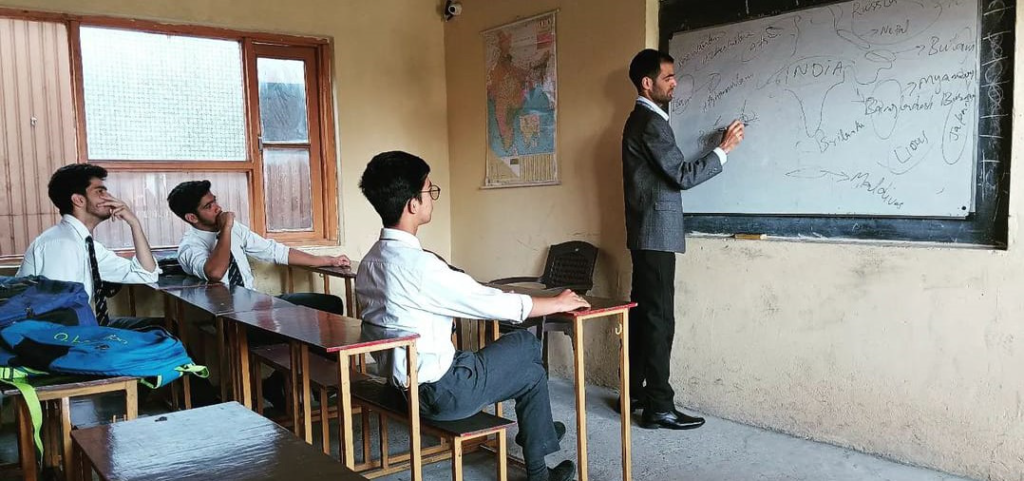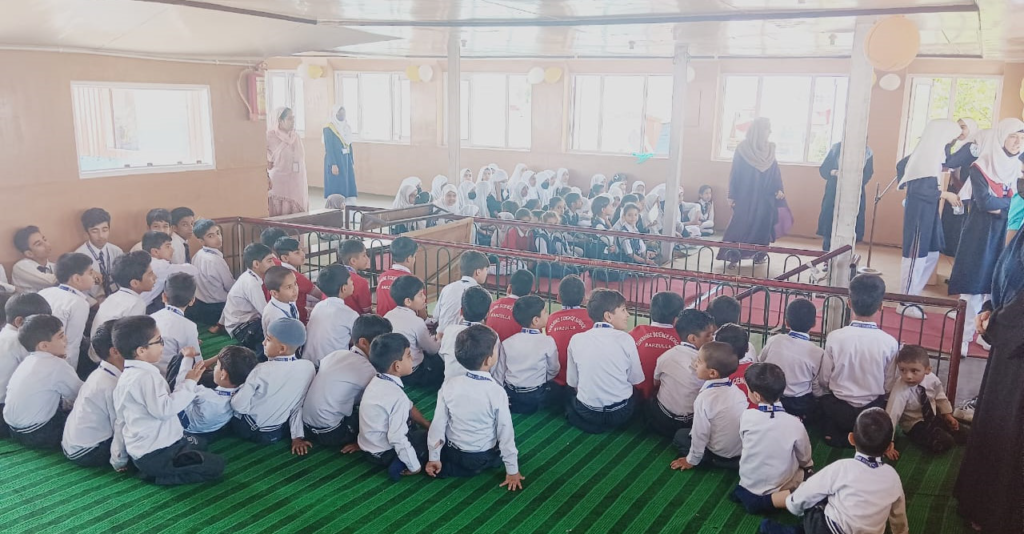In a world where knowledge is power, teachers are the key. There is a cultural reverence and global recognition bestowed upon these exceptional individuals who dedicate their lives to education
By Mir Shahid
Education serves as the bedrock of any thriving society. Human beings, being inherently cognitive creatures, possess the remarkable capacity to think, analyze, and draw conclusions. Education, therefore, emerges as the conduit through which we hone and mold our individual personalities. It not only instills in us the ways of living and behaving but also adds the final finesse to our lives. It constitutes the process of unlocking the doors to learning, the acquisition of knowledge, skills, values, beliefs, and habits in individuals. However, these processes are never innate; they invariably require the guidance of proficient educators. Teachers as Catalysts for Social Change and Development
Education is a potent catalyst for development and a formidable tool for poverty reduction, improved health, gender equality, peace, and stability within a society. The linchpin in this transformative process is a competent and affable teacher. These advancements, benefiting the community or nation at large, owe their existence to the dedication of revered and skilled educators.
Teachers are often likened to spiritual guides, with parents bestowing life upon us while teachers fill our empty vessels with the knowledge of the world. At birth, our capacity to discern between right and wrong, true and false remains dormant, despite the presence of functional photoreceptors. It is through the efforts of teachers that our perceptions are honed, aligning them with the needs of society and our individual characters. Exceptional educators stimulate our intellect, nurturing our ability to discern between good and bad, right and wrong, real and artificial. Such qualities are the hallmark of genuine, esteemed, and respected teachers.

One notable example is Afshana Mam, an innovative and dedicated educator who has chosen to teach at Sunshine Science School, despite being the heir to the institution. Her commitment to making a difference in the lives of minority students is evident in her unique classroom approach. Her teaching and unwavering devotion to her students empower them to overcome their challenges, fostering their academic growth and personal development.
The role of teachers cannot be overstated in the formation of our personalities, the shaping of our futures, and the cultivation of responsible citizens. These extraordinary individuals are the tools of education, responsible for analyzing and solving society’s problems and harnessing information for the nation’s progress.
In a world often marred by selfishness and malevolence, genuine teachers are a rare breed, not the norm. This era is often referred to as the “enlightened period,” yet it is the respected teachers who continue to receive gifts of high regard from their communities. These teachers silently confront numerous challenges and consistently rise to the occasion. Their primary challenge remains their students, and they shine brightly in the process, leaving an indelible mark on their lives.
As Hazrat Ali once said, “A man who has taught me one word becomes my teacher, so I am his servant, and now it is up to him to keep me or to sell me.” This underscores the profound respect accorded to a good teacher. Respected teachers act as catalysts for driving social change and development. They prepare themselves comprehensively to nurture curious pupils, always mindful that the future of innocent children lies in their hands.

The relationship between students and teachers should be viewed through the prism of education, which imparts discipline and morality. This relationship is anchored in the principles of respect, with the teacher often referred to as Guru, Ustaad, or similar titles in different cultures. Some have even equated the teacher to a spiritual father figure, highlighting the emotional significance of this bond.
In Western countries, teachers receive more respect than civil service officers, and there have been instances of separate colonies being established for teachers. The label “nation builder” itself is a monumental achievement. The efforts of the teacher community contribute to the success of the entire nation, as they shape and nurture the intellectual faculties of children, preparing them to shoulder the responsibilities of their families and society at large.
Prophet Muhammad (S.A.W) himself was a teacher and emphasized the importance of respecting and rewarding teachers for their contributions. The reward is intrinsically tied to one’s contributions, echoing the sentiment that “Happiness lies in effort, not success; full effort is full victory.”
Teachers play a pivotal role in transforming raw potential into future leaders, scientists, doctors, engineers, and intellectuals. The entire society owes a debt of gratitude to their tireless efforts and contributions. In turn, teachers must uphold their professional ethics and duties, knowing that their impact resonates through the achievements of their students. This universal truth is recognized worldwide, and the respect and reverence for teachers remain paramount.
The duty of teachers extends far beyond the classroom. It is a noble calling that shapes the future, and society repays their dedication with profound respect and honor. The spiritual and moral message of rewarding teachers is upheld across cultures without controversy.

Leave a Reply